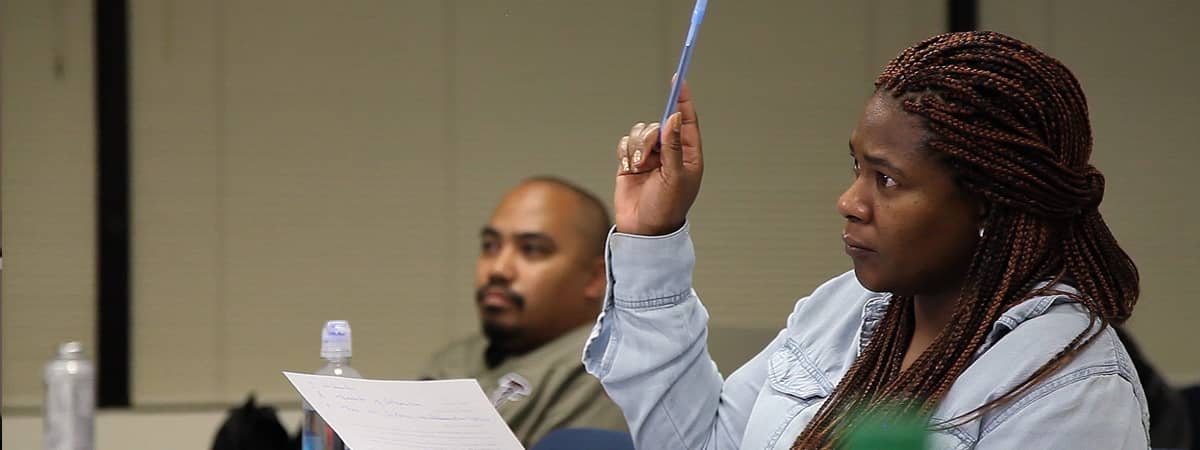Do you find the legal environment interesting? Do you have a passion for helping people pursue justice? If this sounds like you, the paralegal program is waiting for you!
Paralegal employment is one of the fastest growing occupations in the nation. Allan Hancock College’s paralegal studies program will provide students with the education, training and experience they need to become successful paralegals and advance in their profession. Students will learn how to conduct legal research, prepare court documents, participate in case management, and much more.
Coursework is designed to provide a balanced education based on integration of theory and practice, strong written and oral communication skills, and the tools necessary to begin a career in the respected and well-paid paralegal profession. Graduates with an associate in science degree or a certificate of achievement will be prepared for entry-level work as a paralegal.
So, whether you like doing research, enjoy working with people and ideas, or just have a desire to begin your career in a law firm, a paralegal degree may be right for you.
This program will help you:
- know how to prepare court documents
- produce and answer “discovery” (exchange of evidence)
- produce financial disclosures
- conduct legal research
- communicate with clients under the direction of an attorney
- become familiar with appropriate legal codes
- participate in case management
- understand service requirements
Degrees and Certificates Offered
Each program has unique requirements. The order in which you take courses may affect your completion time. Visit the links below to view the program requirements and a general semester-by-semester course schedule.
Associate in Science- Paralegal Studies
Certificate of Achievement- Paralegal Studies
To view all available degrees and certificates visit the Allan Hancock College course catalog.
Programs you may also be interested in exporing...
Contact Information
Department Chair
Marie Comstock
805-922-6966 ext. 3356
mcomstock@hancockcollege.edu
Administrative Assistant
Jayme Meraz
805-922-6966 ext. 3239
jayme.meraz@hancockcollege.edu
Dean, Academic Affairs
Mary Patrick
805-922-6966 ext. 3475
mary.patrick@hancockcollege.edu
Location
Santa Maria Campus
Bldg. K
805-922-6966 ext. 323


